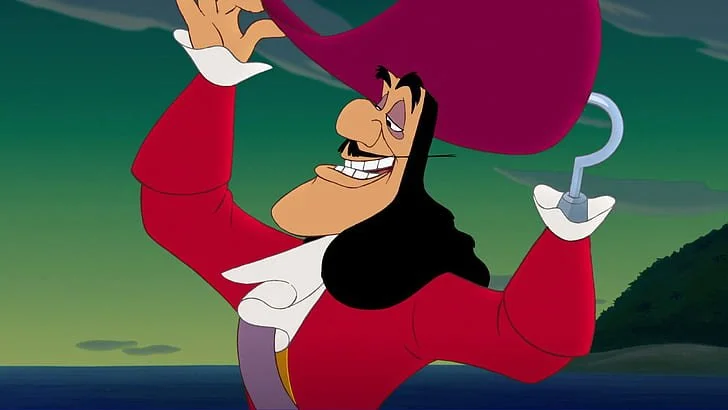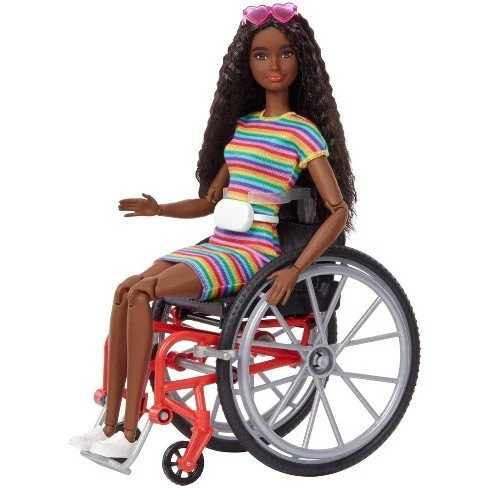The Nuanceletter: September Edition
What you need to know
Disability Representation Matters
TL;DR:
What’s going on?
Americans spend - on average - around 8 hours a day consuming digital media and about 3 hours watching TV. That totals to a scary 11 hours. If we spend around 7 hours asleep…that only leaves us with 6 hours where we aren’t interacting with media. As the media takes up such a huge chunk of our day, it has a significant impact on how we think and perceive the world around us. This is one reason why it is so important that the media we are consuming has diverse representation.
Although disabled people make up 26% of the population, only 3.1% of characters in film and TV are disabled - that's a deficit of 22.9%. The 22.9% who aren't included represent disabled people all over the world who are continually sidelined, excluded, and systemically oppressed.
When we consume media that has an unrealistic and false representation of reality, we are telling ourselves that the world is one-dimensional and that there is only one type of person that matters. This is the “ideal” expectation of personhood: a non-disabled body and mind - often a white, male, tall, athletic, and verbally gifted body and mind. Representation, whether in media or through other mediums, has a direct and tangible impact on the day to day lives of marginalized groups.
Furthermore, when disabled characters are included, they are often minimised to harmful stereotypes and tropes. A few examples are “The Villian” like Captain Hook, or Voldemort, or “The Fool” like the father from I Am Sam.
In a study by the University of Birmingham, The impact of media representation of disabilities on teachers’ perceptions, it was shown that media representation of disabled people impacts the way that teachers view disability and disabled students. Sadly, the majority of the representation was both sensational and stereotypical.
While the disabled community is underrepresented and misrepresented - you and I can make the conscious decision to consume media that is diverse and represents reality.
Something to learn.
Representation isn't only important in media - disabled people should be represented in ALL aspects of life. We should see people with disabilities represented in fashion, in the workplace, in our education systems - there should not be a sphere of life where we exclude 26% of the population.
Disability Inclusive Fashion
Tommy Adaptive by Tommy Hilfiger
Kids' Adaptive Clothing by Target
Disability Inclusive Children's Books
The Christmasaurus by Tom Fletcher
Head’s Up, Tim-Tron by Ian Roy and Gary Parsons
Hello Goodbye Dog by Maria Gianferrari
Disability Inclusive Children's Toys
Black Barbie with Vitiligo by Mattel
LEGO City Skate Park by LEGO
Sensory Mini Mats by Fun and Function
Something to do.
We have written two letter templates that you can email to your favorite brands. One is for toys and the other is for fashion. However, you can take these templates and adapt them for any brand or product that you think needs to be more inclusive.
If they don't reply to your first email, don't hesitate to follow-up and ask why! We shouldn't be easy for brands to brush off and ignore, which is exactly what they'll do if they think that they can get away it.
Something to share.
We've created some shareable media that you can post on your own social media
Something to say.
Sometimes the hardest part about learning things like this when others aren't, is not knowing what to say when people make ableist remarks.
We’ve created some kind but firm rebuttals for you to use.
-
I understand why you like it - but however enjoyable the film may be, it still perpetuates ableist tropes. These tropes are really harmful to disabled people because they reinforce stereotypes that are misinformed, false, and damaging. These stereotypes negatively impact the lives and experiences of people with disabilities. Disabled lives are far more important than our favorite movies.
-
Actually, 26% - more than a quarter - of the US population is disabled. Many people don't know this because disabled people have been systemically oppressed and hidden from public view. There are more than enough disabled people in our world to warrant a range of toys, or clothes, or whatever else they may want or need!
-
Those kinds of words are never acceptable or okay. They are extremely offensive, hurtful, and violent. Even though you didn't write the lyrics, by singing the song you are inadvertently stating that you're okay with that kind of language.






